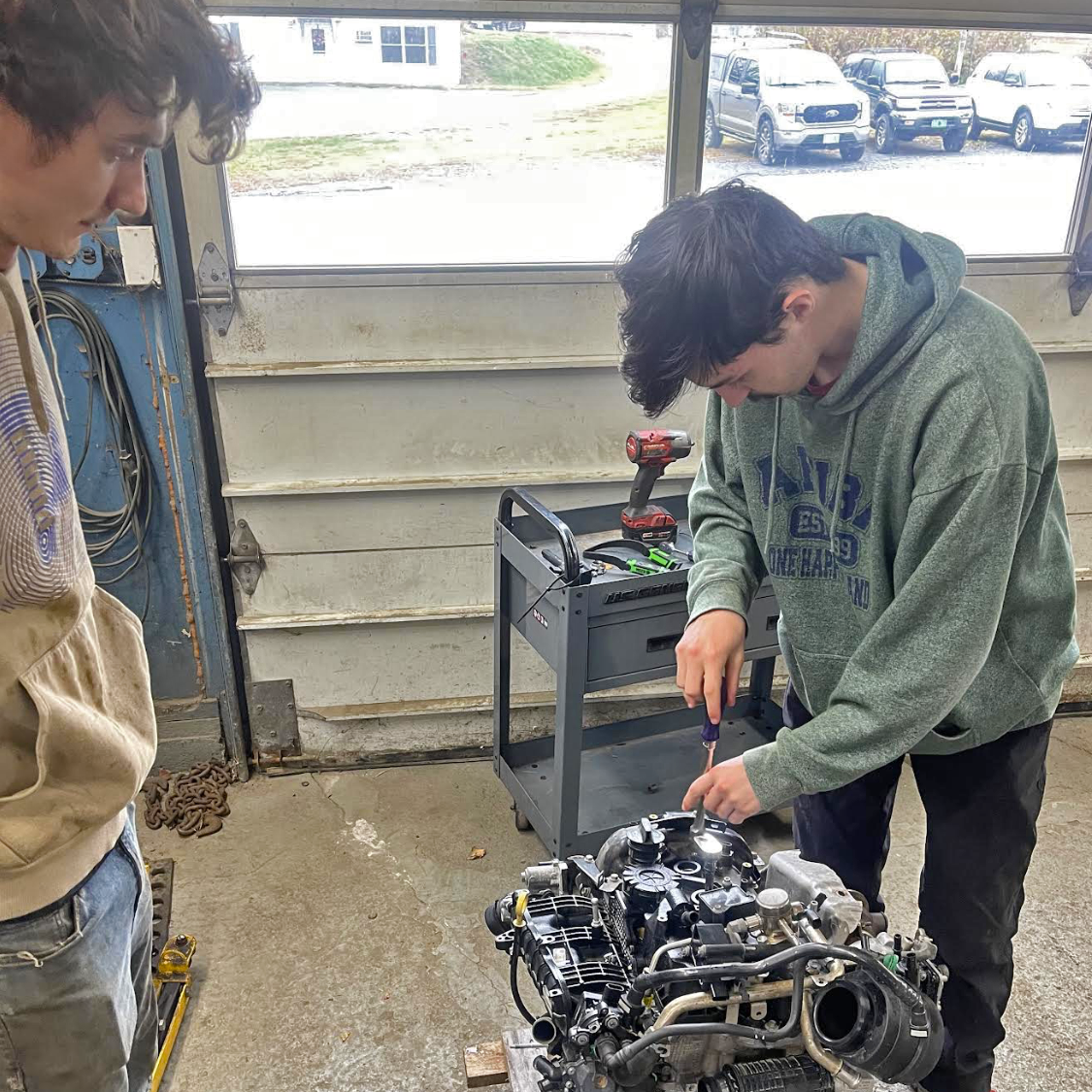The power of work in supportive community
By Tim Vaughan, MAT | Mentor and Executive Director
"Loneliness is the only real disability" – David Pitonyak
At The Trade, we are serious about no artificial ingredients. You won’t find fake “we’re like a family here” branding that only lasts if things are smooth, easy, or friction free. We build real, sometimes awkward, often hilarious, occasionally uncomfortable relationships—because that’s the thing most of our apprentices crave. A happy, fulfilled adult life depends on the quality of relationships you can create, and we help apprentices realize that importance.
Gen Z and Millennials are growing up in the most “connected” era in history while also reporting some of the highest levels of loneliness. There is plenty of data highlighting this problem, notably the U.S. Surgeon General labeling loneliness as “a public health epidemic.” That kind of disconnection doesn’t just make people feel off—it fuels anxiety, depression, and burnout.
Many young people internalize all of this and think it’s “just me and my fault.” They are wrong. It’s not an individual failure; it’s what happens when lives are packed with content and starving for real people. That gap—the space between constant interaction and another person truly knowing you—is exactly what The Trade is designed to close.
When young adults show up at The Trade, they’re often cut off from community, unsure how to connect, and weary of others. But we don’t start with “interventions.” We start with people. We start with building relationships first.
At The Trade, relationships are not left to chance or just isolated to a random weeknight processing group where we discuss “social skills”. If something is important, you must be intentional to create it. For us, relationships are the primary tool, container, and measuring stick. They are what we rely upon to accomplish the work that needs to be done on The Mountain.
How do we do connection without faking it? We keep it stupidly simple and brutally consistent.
1. We share real life, not staged bonding.
Apprentices cook meals for each other. Chores are shared. Machines get fixed, cabins get built, trails get cleared—with people side by side, sharing the same goal, and relying on each other. Trust forms naturally in that repetition of one shared experience after another.
2. We tell the truth (kindly).
“Honest relationships” means we don’t hide behind clinical jargon or customer-service smiles. We respect boundaries and say the real thing:
“You disappeared last night. What’s going on?”
“You’re sharper than the effort you gave today.”
“You handled that better than you think.”
This is rapport with a backbone. Supportive, yes, but also, direct and honest when something needs to be said. None of us can make hard change unless we hear hard truths when needed. Every member of the community—apprentice and mentor—is expected to use their voice like this.
3. We earn belonging through usefulness.
A lot of apprentices arrive carrying a story: I’m no good, not enough, broken, failing at life. We counter that by putting them in situations where their effort clearly matters:
The meal gets made because they cooked.
The project gets done because they showed up.
The group runs smoother because they followed through.
When others rely on you—and say “thanks” because they mean it—your brain starts quietly rewriting the script. Day after day, our apprentices experience how their lives matter to the world around them, and that results in profound change.
4. We protect autonomy instead of encouraging dependence.
Nothing spoils trust like treating adults like children. We set clear boundaries for safety and community, then give our apprentices room:
Choices about how to spend free time,
Chances to solve their own problems before mentors jump in,
Space to try, fail, adjust.
That autonomy is the relationship. It says, “We believe you are capable and trust you can do this. We are standing by you if needed, but you own you.”
5. We don’t stack complexity on top of emptiness.
Here’s where the “no artificial ingredients” thing truly matters.
Many others try to fix deep disconnection with:
More treatment
More medication
More external benchmarks
But when connection, competence, and autonomy aren’t in place, all those extras just amplify shame, anxiety, emptiness and burnout. The foundation is missing, and they don’t fulfill the need we have to be truly accepted and valued.
At The Trade we flip it:
Connection first. Get to know people. Let them know you. Get comfortable with the feeling of being in a healthy community where your belonging is not questioned.
Competence second. Give real skills, real wins, real proof: I can do things that matter.
Autonomy third. Let them steer. Make choices that risk negative consequences and be willing to learn from mistakes and feedback.
Once we have these pieces in place, if there is a need for additional support then we can confidently make decisions on what is truly necessary.
We don’t measure our success with apprentices by a lack of problems or disagreements. That isn’t real life. We measure our impact another way.
The young adult who showed up isolated, guarded, and unsure how to connect slowly:
Takes initiative,
Allows others matter to them,
Allows themselves matter to others.
These positive developments aren’t part of a “program”. They are a nervous system-level change that comes from being in sturdy, honest relationships long enough for your guard to get tired and your real self to come out.
Once we connect a young person to their real self, the process of moving into adulthood independently is much straighter. We do our best surrounded by a community and tribe that supports us.

